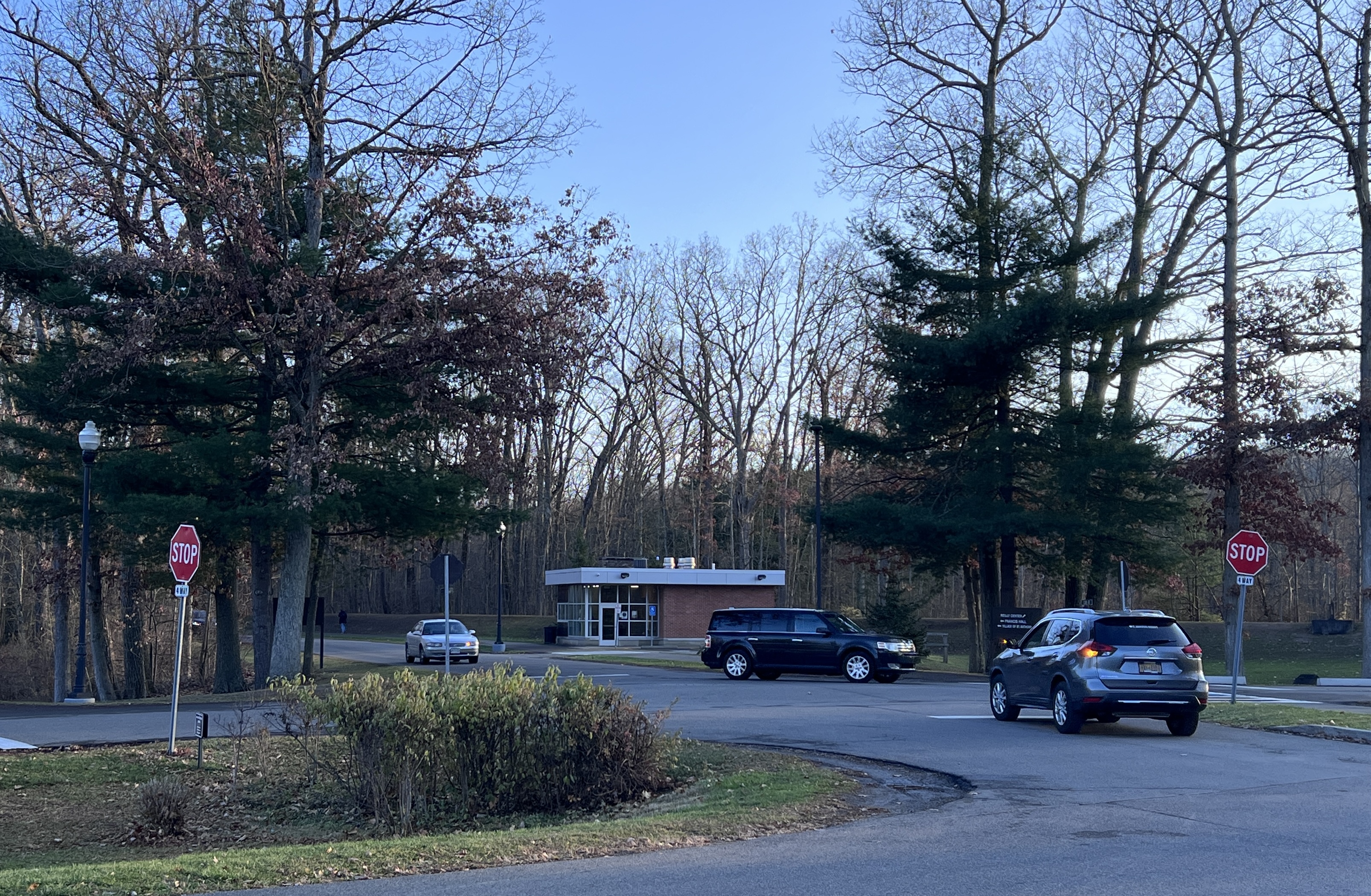By Emily Losito
News Editor
Three hundred people stared back at Jordan Powers at the Rustbelt RNA Meeting in Cleveland, Ohio. The meeting took place from Oct. 14 to 15. Powers, a junior biochemistry major at St. Bonaventure, gave a presentation titled “RNA-seq data analysis revealed a novel role of SR45 in plant innate immunity.”
He received one of two awards for “Outstanding Undergraduate Presentation.”
Xiao-Ning Zhang, Ph.D., has been working at Bonaventure for seven years and was with Powers at the meeting.
Zhang, associate professor of biology, said this was the first time one of her students received an award.
Powers said he was very nervous. “I’ve never really spoke in front of a crowd before…with so many people who knew so much,” he said.
“We [the science department] have always had, and still have, many high-quality students. But in the past, students saw giving a research talk in front of hundreds of experts more of a challenge than an opportunity,” Zhang said. “Jordan saw this as an opportunity for him to grow professionally and volunteered to give this talk. Opportunities favor the prepared ones. He prepared well and succeeded.”
Zhang, also the director of the biochemistry program, said students in a small school, such as Bonaventure, don’t think about the emphasis on research. “If students do research, they can be great. The science community can see that,” Zhang said.
She said, “The project took a new direction we didn’t anticipate….in the spring, we explored flower development regulation. We found a gene related to immunity.”
The research focused on a protein called SR45. This is a gene in plants that suppresses immunity and regulates growth, Powers said. He also said there’s a plant without the SR45 gene that doesn’t grow as well as others do with the gene present, but it’s more immune to bacteria.
Powers said the project was difficult for him because it was so new. His partner, Nikhil Gowda, a senior biology major, worked mostly on the bioinformatics portion of it, according to Powers.
Gowda said he has always been involved with computer science and is very interested in biology.
“I think this bioinformatics work that I do is a really good mix of these interests,” he said.
Zhang said Gowda did computer analysis and found strong correlation with the immunity gene.
Gowda said, “I’ve been doing bioinformatics research at [the National Institutes of Health] over the summer for the past five years….I’m pretty comfortable with bioinformatics and I thought I could help Dr. Zhang out with research this semester in analyzing some of her data.”
Gowda analyzed mRNA sequencing by using tools to compare the data between normal plants and those that don’t contain the SR45 gene. Zhang said Powers mainly focused on the biology of it.
“The process of this involved taking the sequence reads that was obtained earlier, aligning the data to a reference genome, finding what genes had more reads mapping to it and using statistical tools to calculate which genes were therefore upregulated or down regulated by SR45,” Gowda said.
“It’s important for Bonaventure to be recognized on the quality of research. There are people who don’t know who or what we are,” Zhang said.
Bonaventure has been getting more acknowledgement recently. Albrecht von Arnim, Ph.D., is a professor of biochemistry and cell and molecular biology at the University of Tennessee.
von Arim, also the director of genome science and technology, reached out to Zhang in a letter hoping to recruit some students graduating this year from the program.
Zhang said that Powers’ and Gowda’s work was the biggest excitement in the lab.
She said, “I try to sit back and wait for the surprises. That’s the best part.”
lositoek14@bonaventure.edu








